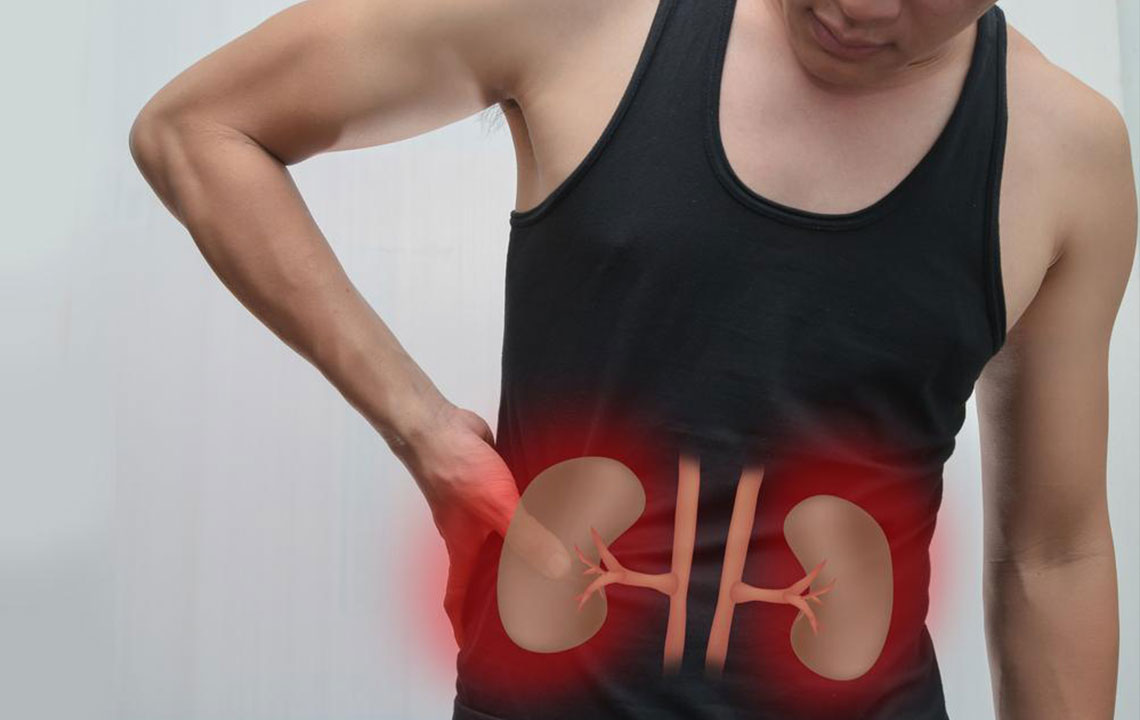High Creatinine Levels – Causes, Symptoms, and Management
Creatinine is a metabolic byproduct released in the body due to the breakdown of creatine phosphate from the muscles. Normally, it is produced constantly, filtered out of the blood by the kidneys, and excreted in urine. Healthcare experts monitor creatinine levels through blood and urine tests as a common way to assess kidney function. High levels of creatinine in the blood may indicate problems with kidney function, such as chronic kidney disease (CKD).

Understanding creatinine levels
High creatinine levels often do not show any noticeable symptoms, making it necessary to rely on routine blood tests like basic metabolic panel or BMP to detect them. The BMP test checks various levels in the blood, including creatinine, blood glucose, calcium, sodium, potassium, carbon dioxide, chloride, and blood urea nitrogen (BUN). In some cases , urine tests may also be used to confirm high creatinine levels.
Generally, the normal levels of creatinine in the blood range between 0.7 and 1.2 milligrams per deciliter (mg/dL). For urine tests, the typical range is between 955 and 2,936 milligrams per 24 hours (mg/day) for men and 601 and 1,689 mg/day for women. If the creatinine levels increase beyond these ranges, medical intervention may be required. In most cases, healthcare experts usually factor in a person’s muscle mass, age, hydration levels, and presence or absence of preexisting health conditions to accurately determine whether the creatinine levels are high .
Causes of high creatinine
High creatinine levels are often an indication of impaired kidney function. This can happen due to various factors, some of which may be temporary, while others may be permanent. Temporary causes include consuming large amounts of protein, experiencing severe dehydration, or engaging in prolonged high-intensity exercise, all of which can impact the optimal functioning of the kidneys and result in a one-time spike in creatinine levels.
Conversely, persistent high creatinine levels may often result from serious underlying health conditions that affect the kidneys or cause kidney damage.
- Kidney infection or pyelonephritis
- Glomerulonephritis
- Diabetes
- High blood pressure
- Heart conditions like congestive heart failure or atherosclerosis
- Blockage in the urinary tract due to issues like kidney stones
- Acute or chronic kidney failure
Symptoms of high creatinine
As implied earlier, elevated creatinine levels do not display symptoms in the initial stage. But if the underlying cause is related to kidney issues, some symptoms may gradually appear as the organ’s function declines. This occurs when the kidneys are no longer able to filter out waste products and excess fluids effectively, leading to their accumulation in the body. At this stage, a person may begin to experience a range of symptoms.
- Less or no production of urine in the body
- Retention of fluids, leading to edema or swelling of the ankles and feet
- Hematuria or the presence of blood in the urine
- Proteinuria or the presence of protein in the urine
- Dyspnea or shortness of breath
- Constant feeling of fatigue or unusual tiredness
- Loss of appetite
- Nausea and vomiting
- Difficulty processing information
- Pruritus or constant itchiness
- Seizures in the case of severe acute kidney failure or advanced chronic disease
Managing high creatinine levels
When creatinine levels are elevated beyond the normal range, it becomes important for a healthcare provider to identify the underlying cause. Once the cause is determined, the next step is to address the health condition that is causing the increase in creatinine levels. This often requires medical attention.
In cases when the underlying cause is not quite serious, making certain lifestyle changes can help manage creatinine levels. These changes may include incorporating meals with low protein content, avoiding foods high in proteins, engaging in light to moderate exercises, and overall adopting a healthier lifestyle. The ultimate goal is to promote kidneys so that the waste products are filtered out from the body efficiently.
Tips to prevent high creatinine levels
When one experiences high levels of creatinine due to a preexisting health condition, completely avoiding it can be challenging. But, taking proactive measures and implementing a few strategies to promote better kidney health can help manage creatinine levels and bring them closer to the normal range.
- Follow a healthy lifestyle
To maintain healthy levels of creatinine , prioritize nutritious and balanced meal plans that include plenty of organic and whole foods. Additionally, it is crucial to limit the intake of high-protein meals as they can lead to an increase in the creatinine levels over time. Along with this, one needs to follow a regular exercise routine that includes low to moderate-intensity activities. Engaging in high-intensity exercises should be avoided as they can contribute to increased creatinine levels. - Monitor renal function
Those who are at a high risk of developing kidney problems due to conditions like high blood pressure or diabetes must prioritize regular health checkups. These checkups must specifically involve a thorough examination of the renal function to identify and address any potential abnormalities. - Maintain hydration levels
Keeping the body hydrated by drinking adequate amounts of fluids can support the optimal function of the kidneys and flush out unwanted waste from the body. So, try to drink eight glasses of water throughout the day to help prevent a rise in creatine levels.




